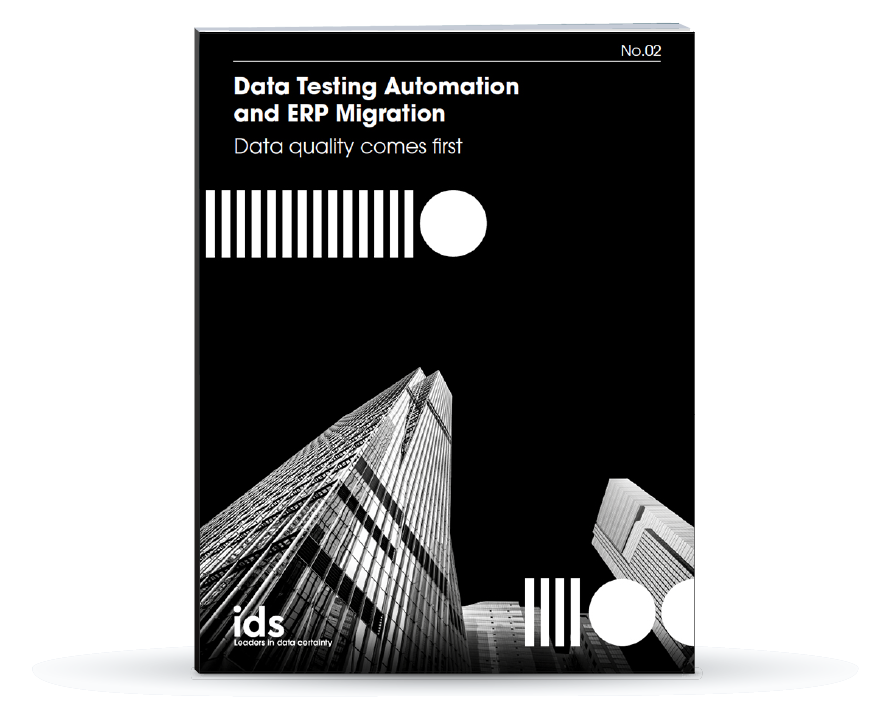ERP Data Migration: Failing to Plan is Planning to Fail

Why Data Quality Comes First When Replacing Your Legacy ERP System
Many businesses are finding that their legacy ERP solution is no longer fit for purpose, has become outdated or is simply nearing the time when it will no longer be supported.
Whatever the reason, business leaders know that failing to migrate to the latest version is not a realistic option and that they face some major challenges to ensure that the transition goes as smoothly as possible. ERP migration is not something to be taken lightly nor can companies expect to complete the process without overcoming some potentially business disrupting and resource consuming tasks that need meticulous planning and preparation, as well as total stakeholder buy-in to overcome.
Data migration in particular is going to require special attention if future pitfalls are to be avoided. ERP data migration is the critical element of the ERP transition process, which means that every effort is needed to ensure that the new system is not contaminated by importing out of date, incomplete or inaccurate data that can be the consequence of poor data management practices in the past. Migrating data is a complex activity that not only demands a detailed plan but also specialist skills and experience that most companies are unlikely to have in-house.
Take an in-depth step towards your next ERP migration and learn how to prioritize data quality from IDS' new guide.
At IDS our consultants bring considerable experience in working with organisations of all sizes and the most complex data sets using tried and tested methodologies that help to eliminate the risk of project failure. Our methodology is divided into key stages.
Project Scoping
Before starting out on such an important project a clear roadmap is needed that includes both the practicalities and the technical requirements to maximise the chances of success, including.
• Defining the key milestones, timelines, deadlines and objectives
• Assessing budgetary issues
• Identifying and updating stakeholders
• Developing an inclusive communication plan
• Identifying and allocating sufficient human resources for the duration of the project
• Details of the proposed migration methodology
• A data security plan
• Specifying which data migration tools are needed
• Establishing that the necessary software skills are available in the project team
• Identifying where the data is, how is it structured and how good in terms of quality
A Robust and Proven Data Migration Methodology
The success of the data migration process is determined largely by having a robust and proven methodology in place from the outset, which should include:
• How the data is extracted, held and verified
• How the data is to be aligned with thenew target structure
• Details of the migration mapping rules
• The tools needed for reporting, structure and constraints
• The testing specifications
• The recovery plans for each stage of the migration
• The actions required to go live
Data Preparation
Preparation of the data is a critical project success factor that needs to be carried out in stages including:
• Checking how each system works and how the data within each system is structured
• Validating that all the data is fit for purpose
• Checking the data quality to ensure that it is still suitable for the new requirements of the business and identify whether or not the data is of the correct standard and format
• Defining factors for the data that is no longer required
• Checking that the data is available, accessible, complete and in the correct format
• Data cleansing and its impact assessment on other elements within the source and target systems.
Data Security
Data security and privacy is now a legal requirement for any organisation that stores and processes data. The ERP data migration process is perfect opportunity to create a data security plan that can be embedded in the migration process. Things to take into consideration include:
• Ensuring the data transfer process is secure
• Creating secure access to the server and the data
• Allocating permissions required to access and transfer data
• Clearance and vetting of personnel, including outside consultants
• The training or information sessions required by personnel
• Vetting of the software that will be used for the migration
• Protocols for the use of email and portable storage devices.
With so much to consider before beginning the ERP migration process itself the key to ensuring that the project is delivered on time and on budget is starting this planning process as early as possible and choosing the right partner to guide you through the journey.
The above check list is really just a fraction of what you will need to know for a successful outcome. To understand more about what is involved it is well worth investing the time for a discussion with one of our experienced consultants.

Data Testing Automation & ERP Migration
IDS work with specialist organizations, delivering 100% data certainty throughout any ERP migration project. Our downloadable case study reveals the challenges, outcomes and lessons for a local council's migration project.


